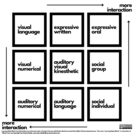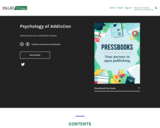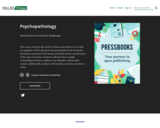
This open textbook introduces instructors to engaging their students.
- Subject:
- Education
- Material Type:
- Textbook
- Provider:
- PALNI Press
- Author:
- Andrea Bearman
- Date Added:
- 01/19/2022

This open textbook introduces instructors to engaging their students.

This graphic is a visual representation of nine learning styles. The center square is a neutral square that involves components from other styles. The upper right and lower left directions are styles that require more interaction than others. This resource could be paired with the original source as a visual element or students could conduct research to determine where they fall on this matrix.

Trine University promotes the awareness, adoption, adaptation, and creation of open educational resources and no-cost resources for students. This work: “An OER Workshop” by Andrea Bearman is licensed under CC-BY 4.0 and is a derivative work of Creative Commons Certificate for Educators, Academic Librarians, and GLAM. In order to receive a certificate, you must take the course through Creative Commons. This book means to share an abbreviated version of the information with Trine University specifics.

Course Description:
A study of the psychological and sociological factors relating to the problems of addiction. Special attention will be given to the effects which alcohol and other drugs have upon fetuses, children, adults, families, and communities.
Learning Outcomes:
Examine the dominant beliefs and attitudes in our society with regard to chemical use, abuse, and addiction. (LO1)
Define characteristics of the major classes of drugs. (LO2)
Identify and summarize the addiction process and the characteristics thereof. (LO3)
Explain the effects of addiction on individual, family, and community. (LO4)
Outline and critique current intervention and treatment modalities used in the field. (LO5)

This course involves the study of victims and witnesses of crime. An emphasis will be placed on the psychological and emotional detriments associated with being victimized and the classification of the types of victims. Students will learn how to apply criminological theory to address why offenders choose their victims. Additionally, students will examine a victim’s reaction to crime.

Describes the details regarding Reactive Attachment Disorder (RAD).

This course provides the knowledge needed to effectively use Statistical Process Control (SPC). The relationship to quality costs, on-time delivery, concepts of variation, and an analysis of the organization-specific SPC applications will be introduced. Utilizing SPC to improve and maintain consistent production will be covered. The use of Lean manufacturing to shorten the time between the customer order and the product build/shipment by eliminating sources of waste will also be covered through the study of system performance, identification and elimination of waste, elimination of sources of variability, and a good understanding and use of the principles of operations management.

This document characterizes the key struggles that have been identified in research for parents during the COVID-19 pandemic.

With the vast and varied technologies available to leaders, it is no doubt managing these technologies can be challenging. Yet, leaders must have a sense of which technologies will help the organization and its members to be successful. While an organizational leader does not need to be a technology expert, having an awareness of the impact technology has on an organization is important.

Shares why diverse assessments are nice for students!

This work, "Workforce Generations" by Andrea Bearman, is licensed under CC-BY 4.0; It is a derivative work of "Workforce Generations by Freedom Learning Group, licensed under CC-BY 4.0